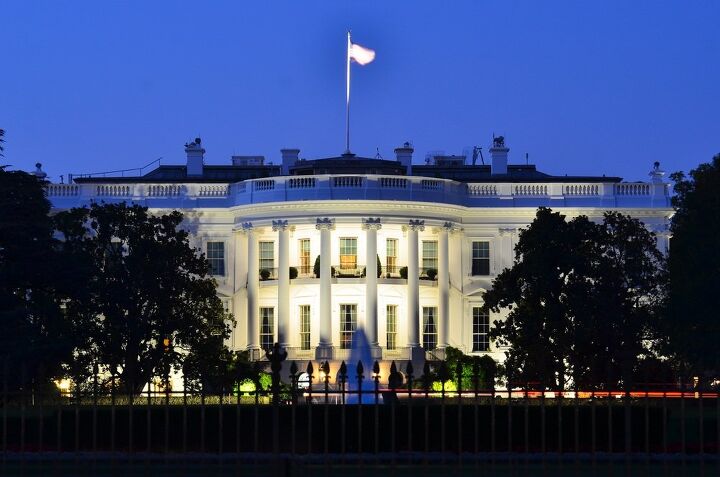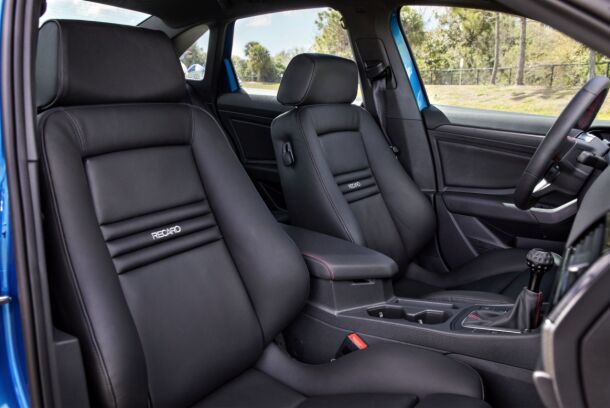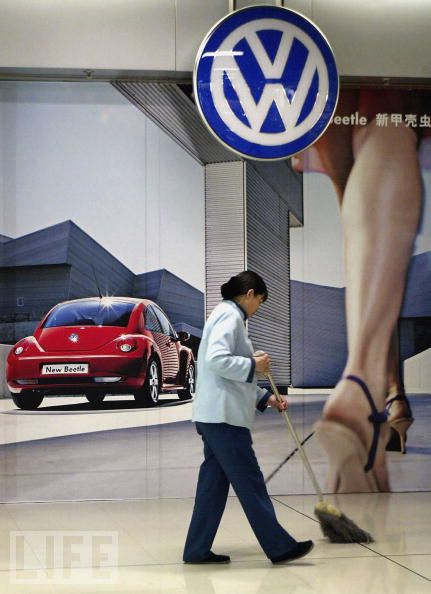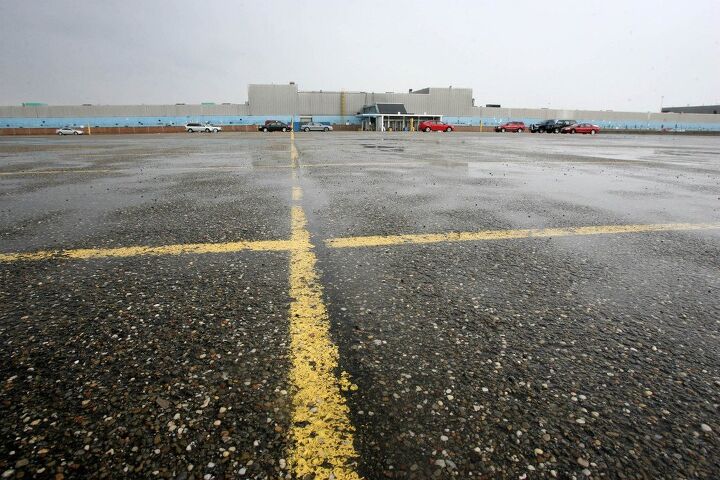#shortages
Report: Nobody Can Build Enough Electric Vehicles
Automakers have been having trouble building much of anything since 2020 began, thanks to a comprehensive breakdown in logistics. But the hype around electric vehicles has made them even trickier to build now that they’re starting to represent a more meaningful portion of the market. Ironically, the industry’s desire to see EVs become more popular seems to be backfiring as nobody seems capable of keeping up with demand.
Toyota Confronting Widespread Factory Stalls in Asia
Toyota Motor Corp is currently having to contend with idle factories in Asia, reducing the automaker’s estimated output by over 47,000 units this month. Shockingly, it’s not alleged to have anything to do with the semiconductor shortage that’s been wreaking havoc on Western markets.
With chip production having been localized primarily in China and Taiwan, Asian suppliers have had better access to them. But Eastern markets have still been subjected to other routine plant closures due to supply chain restrictions stemming from the pandemic. Existing protocols in China, combined with renewed restrictions in Japan, have created a situation impacting numerous automakers with Toyota announcing this week that it probably won’t reach its goal of manufacturing 9 million cars this year — though it made sure to include the ongoing semiconductor issue as relevant.
Report: Biden Admin May Link Semiconductor Subsidies to Unions
Despite the semiconductor shortage having encouraged the automotive sector to repeatedly idle factories, word on the ground is that things are becoming more stable. Companies are seeing less production downtime overall and workers are reporting more reliable working conditions across the board. However, several automakers have continued to express concerns (e.g. Volvo), alleging that chip shortages could stretch deep into 2022, while the U.S. government ponders how to advance chip production in-country and become less dependent on Asian suppliers.
Commerce Secretary Gina Raimondo has been touring Michigan, meeting with union members and industry heads, and plans to urge Congress to move on a $52 billion in funding bill aimed at boosting domestic production. We’ve questioned the efficacy of the CHIPS Act before, primarily in relation to how the subsidies would be allocated. But there are new concerns that the plan will mimic the Biden administration’s EV subsidies by spending heaps of taxpayer money and giving union-backed organizations a larger cut.
Automakers Accused of Chip Hoarding, U.S. Considers Defense Production Act
Despite the occasional media report claiming that the semiconductor shortage is nearly over, reality looks quite a bit different. Some manufacturers have managed to temporarily stabilize supply chains, even though others have continued announcing work stoppages as they run out of chips. Wait times for the electronic components have also increased by about 61 percent since the beginning of 2021. Meanwhile, a recent Kelly Blue Book survey had 48 percent of respondents saying they were going to postpone buying a new automobile until shortages end, prices come down, and they can actually find the vehicles they’re looking for. But even those that were willing to buy now expressed a surprising level of acceptance to abandon brand loyalty or their preferred body style just to get a fairer deal on an automobile.
With the United States fairing worse than other regions in regard to chip availability, the White House has been under pressure to solve the problem all year. Thus far, government strategy has focused on encouraging investments for new semiconductor production. But there’s a new gambit being proposed that would invoke a Cold War-era national security law that would force manufacturers to furnish information pertaining to semiconductor supply lines and chip sales.
The Great Used Car Buyup of 2021
With automakers having a difficult time keeping production schedules thanks to COVID restrictions nuking demand and upending supply chains, 2021 arrived with plenty of problems. Desperate to replenish fleets they had sold off while everyone was locked indoors, rental agencies went on a used car buying spree. But it wasn’t just rental fleets that needed to be restocked, dealerships are also finding themselves with fewer models on the lot than they’re accustomed to — which is a bad position to be in when surveys have revealed consumers are now willing to pay stupidly high prices for automobiles.
They’re reportedly going to great lengths to acquire used cars as the great buyup of 2021 continues.
Connected Vehicle Sales Grow by 20 Percent in 2021
Connected vehicle sales will grow 20 percent in 2021, with a 10.4 percent compound annual growth rate (CAGR) between 2020-2026 according to ABI Research, a tech market advisory group.
Sit on It: Foam Shortage Concerning Suppliers
You’ve no doubt heard about the chip shortage sweeping the automotive industry. But have you heard of the foam shortage? That’s right, there’s a dazzling new deficit of supplies in the manufacturing sector and it’s affecting your seats. The semiconductor crisis is so winter. Next season’s hottest supply trend involves those lovely little petrochemicals necessary for foam production.
Texas storms that left millions without power last month, during one of the coldest winters in the region, could have reportedly shorted oil refinery output to a worrying degree. There is now an underabundance of refinery byproducts used to make propylene oxide, which is required to produce polyurethane foam, which is used to manufacture car seats.
Beijing Runs Out Of Cars, Beijingers Mob Dealerships
Beijingers who shop for a car increasingly find themselves SOL. Dealers report a shortage of cars. Especially scarce: inventories of Volkswagens, China’s largest passenger car brand. “I have to turn to another auto brand for not being able to get a single car of Volkswagen’s for five months,” a customer named Li Guang complained to China’s Global Times. The paper reports delivery times of 3 months for China-made Polos, Sagitars (formerly known as Jetta) and Magotan (known as the Passat B6 in other countries.) Now, Beijing’s car dealers are pouring more oil on the fire. The rumor mill is ablaze with talk that Volkswagen might postpone its car supply to Beijing’s auto market for January next year, because Beijing might launch new car registration limit policies at that time. The result?
OMG! American Dealers Run Out Of American Cars!
Forget about Europeans complaining about missing parts. Over in America, there is an acute car shortage. Dealers blame who they always blame: The manufacturers. “They’ve cut back production so much that we’ve run out of cars,” Boston dealer magnate Herb Chambers tells his hometown paper, the Boston Herald. He says he had to “beg, borrow and steal” Cadillacs from dealers in other parts of the country. Down at the South Shore, dealer Dan Quirk loses 60 to 90 sales a month. “The Big Three just don’t have enough manufacturing capacity any more,” kvetches Quirk. “Some of the automakers, particularly General Motors, closed a lot of their plants when the meltdown hit.” Supposedly it’s not just a Bostonian phenomenon. Supposedly. At closer look, it might be a fire breathing, rip-snorting chimera.
Japanese Importers: The Chinese Are Taking All Our Cars
Audi’s sales in Japan went down 20 percent in October. The macro-oriented crowd points at the fact that the domestic Japanese market was down 26.7 percent in October, and that Audi or its dealers have no reason to complain. And what are Japanese Audi dealers doing? They are complaining. They say that they have enough buyers, but not enough cars to meet the demand.
They all go to China.
Hilfe! Huge Car Shortages In Deutschland!
How things change. A few months ago, German dealers complained that the sky is falling, and that it’s the end of the car business as we know it – just because German cars sales had crashed from their Abwrackprämien-induced unnatural highs. Now, German car dealers have new reason to be worried: More buyers than cars! Rationing! Come back next year!

























Recent Comments